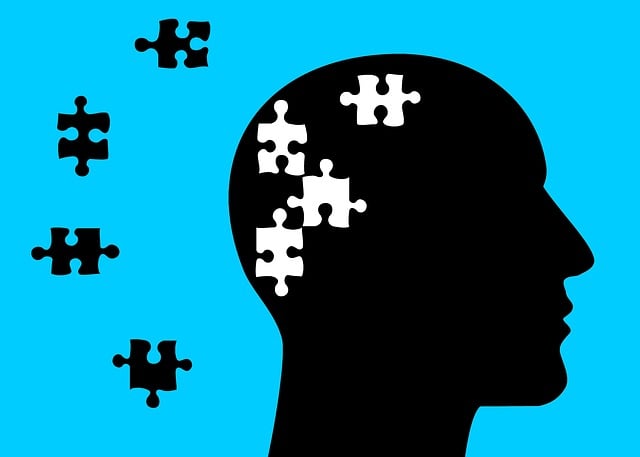The rise of Superior Online Therapy platforms disrupts traditional mental wellness evaluations by offering accessible, affordable alternatives with personalized treatment plans powered by analytics and machine learning. Evaluating these platforms involves tracking KPIs like client satisfaction, adherence rates, and clinical outcomes, as well as assessing indirect impacts through user engagement features. Feedback mechanisms are crucial for tailoring care and improving the overall user experience. Comprehensive tools for monitoring client improvements, such as pre-post assessments and interactive modules, enable evidence-based practice. Ethical considerations and data privacy are paramount in this growing digital wellness landscape, with robust safeguards protecting user information to encourage open discussions about mental health.
In today’s digital age, mental wellness programs, particularly superior online therapy platforms, are transforming access to care. This article delves into evaluating these innovative solutions, exploring key methods such as assessing efficacy, gauging user satisfaction through feedback mechanisms, tracking progress, and measuring outcomes. Additionally, it examines ethical considerations and data privacy concerns, highlighting the importance of responsible development and implementation of digital wellness programs.
- Assessing the Efficacy of Online Therapy Platforms
- User Satisfaction and Feedback Mechanisms
- Tracking Progress and Measuring Outcomes
- Ethical Considerations and Data Privacy in Digital Wellness Programs
Assessing the Efficacy of Online Therapy Platforms

The rise of online therapy platforms has significantly impacted mental wellness program evaluation methods. By leveraging digital tools and technologies, these platforms offer accessible and often affordable alternatives to traditional in-person therapy. Assessing their efficacy involves examining key performance indicators (KPIs) such as client satisfaction, adherence rates, and clinical outcomes. Superior online therapy platforms typically employ advanced analytics and machine learning algorithms to personalize treatment plans, enhancing the effectiveness of emotional well-being promotion techniques.
Beyond measuring direct therapeutic effects, evaluating these platforms should also consider their indirect impact on mental wellness through features like user engagement, community forums, and educational resources. The integration of emotional intelligence training within online therapy sessions has shown promise in improving clients’ ability to manage stress and regulate emotions. Similarly, the production of high-quality mental wellness podcast series can augment platform offerings, providing ongoing support and promoting a sense of community among users.
User Satisfaction and Feedback Mechanisms

Evaluating user satisfaction is an integral part of assessing the effectiveness of any mental wellness program, especially in the realm of superior online therapy. The feedback mechanisms in place allow individuals to share their experiences and offer insights on how to enhance the service. By collecting and analyzing user input, programs can identify areas that excel and those that need improvement, ensuring a more tailored and appealing experience. This interactive approach not only empowers users but also fosters a sense of community and involvement.
Effective feedback systems encourage open dialogue, enabling individuals to provide suggestions for self-care routine development within the digital therapy setting. Additionally, the data gathered can inform mental health policy analysis and advocacy efforts, highlighting successful strategies that combat mental illness stigma reduction. These mechanisms collectively contribute to creating inclusive and supportive environments that prioritize mental well-being.
Tracking Progress and Measuring Outcomes

Effective mental wellness programs are characterized by their ability to track progress and measure outcomes, ensuring that efforts are not only well-directed but also yielding tangible results. Superior online therapy platforms play a pivotal role in this regard by providing comprehensive tools for monitoring client improvements. These tools often include pre-post assessments, regular check-ins, and interactive modules designed to gauge changes in symptoms, coping mechanisms, and overall mental health.
Social Skills Training, Community Outreach Program Implementation, and Mental Illness Stigma Reduction Efforts are just a few areas where these platforms excel. By collecting data on participant engagement and outcomes, superior online therapy services enable practitioners to adapt interventions, personalize care, and ultimately enhance therapeutic effectiveness. This continuous evaluation process fosters a culture of evidence-based practice, ensuring that mental wellness programs remain responsive to the evolving needs of their clients.
Ethical Considerations and Data Privacy in Digital Wellness Programs

In the realm of digital wellness programs, where online therapy and trauma support services thrive, ethical considerations and data privacy take on heightened importance. As more individuals seek superior online therapy as an alternative to traditional in-person care, the need for robust safeguards becomes imperative. This is especially crucial when addressing sensitive topics like self-esteem improvement and coping skills development, which require a deep level of trust between the user and the platform.
Program evaluators must ensure that data collection practices adhere to stringent privacy standards, protecting user information from unauthorized access or misuse. Transparent consent processes, clear data usage guidelines, and secure storage methods are essential components in maintaining ethical standards. By prioritizing these factors, digital wellness programs can foster a safe environment, encouraging users to openly discuss their mental health challenges without fear of exposure, thereby enhancing the overall effectiveness of the therapy experience.
Evaluating mental wellness programs, particularly Superior Online Therapy platforms, requires a multi-faceted approach. Assessing efficacy, understanding user satisfaction through robust feedback mechanisms, tracking progress, and measuring outcomes are pivotal. Furthermore, addressing ethical considerations and ensuring data privacy in digital wellness initiatives is paramount to fostering trust and promoting positive mental health outcomes. By integrating these evaluation methods, we can enhance the quality and accessibility of online therapy, making it a viable and effective game-changer in managing mental health.














